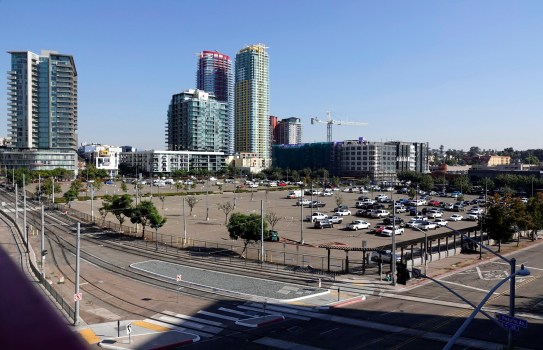
San Diego’s Potential Violation of Environmental Law in Tailgate Park Sale to Padres
In recent months, San Diego’s decision to sell Tailgate Park to a development team associated with the San Diego Padres has raised significant concerns among environmental advocates and legal experts. The proposed sale has been scrutinized for potentially violating state and federal environmental laws, particularly the California Environmental Quality Act (CEQA).
Background on Tailgate Park
Tailgate Park, located near the Padres’ home at Petco Park, has been a focal point for various developments aimed at enhancing the downtown area. The city of San Diego proposed selling the park to the Padres’ development team to facilitate a new project that promises to revitalize the area, create jobs, and generate revenue. However, critics argue that such a move could come at a steep environmental cost.
Concerns Over Environmental Impact
One of the primary concerns surrounding the sale is the lack of a thorough environmental review. Under CEQA, any project that could significantly affect the environment must undergo a comprehensive assessment to evaluate potential impacts and identify mitigation measures. Critics argue that the sale of Tailgate Park could lead to increased traffic, loss of green space, and potential harm to local wildlife.
Environmental groups have voiced their worries that the city may be sidestepping necessary assessments to expedite the deal, which could set a dangerous precedent for future developments. This perceived disregard for environmental regulations raises questions about the city’s commitment to sustainability and responsible urban planning.
Legal Ramifications
Legal experts are examining whether the city’s actions could expose it to lawsuits. If the sale proceeds without a proper environmental review, it could lead to challenges from advocacy groups or concerned citizens. Such legal disputes could delay the project and increase costs, undermining the intended benefits of the development.
Additionally, California’s robust environmental laws are designed to protect public health and ecosystems. Failing to comply with these laws could result in significant penalties for the city and potentially jeopardize the development agreement with the Padres.
Public Sentiment
Public opinion on the sale is divided. Some residents and local businesses support the development, hoping it will bring economic growth and enhance the urban landscape. Conversely, many community members prioritize environmental sustainability and advocate for preserving public green spaces.
Calls for increased transparency have emerged, with community stakeholders demanding more engagement in the planning process. A robust public discussion regarding the environmental implications of the sale could help balance economic interests with environmental responsibilities.
Conclusion
As San Diego navigates the complexities of urban development and environmental stewardship, the sale of Tailgate Park to the Padres development team stands as a critical case study. The potential violation of environmental laws raises significant questions about the city’s priorities and its commitment to sustainable development. With growing public scrutiny and the possibility of legal challenges, it remains to be seen how the situation will unfold and what implications it may have for future projects in San Diego.

Leave a Reply